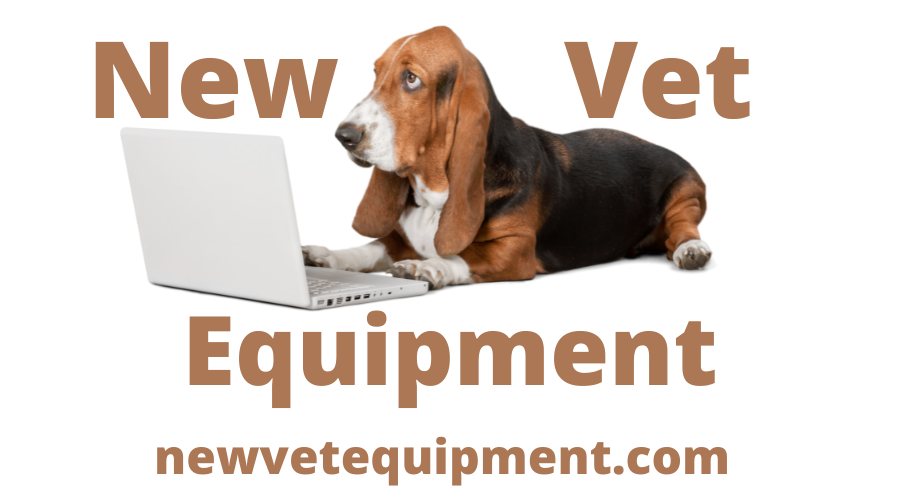What to Know About the Mindray Vetus E7 Ultrasound
Purchasing a new veterinary ultrasound machine is an exciting, yet complex, decision. A veterinarian may feel overwhelmed by choices. There are many systems available at all different price points, with different features—many of which are hard to compare side by side for vets who are new to performing ultrasounds.
In this article, we’ll look at some of the features of the Mindray Vetus E7 Ultrasound, a veterinary-specific model, to see if it might be a fit for your practice.
What Is the Mindray Vetus E7 Ultrasound?
The Vetus E7 is a laptop-type portable ultrasound unit made specifically for veterinary practitioners. It’s designed for use on both small and large animals, for abdominal studies, cardiology, musculoskeletal and small parts studies, and even some reproductive applications.
This 2022 model features a lot of new and advanced technology. Some of the key features that might appeal to a veterinarian are discussed below.
Features of the Vetus E7
While every practice has unique needs, these features may be beneficial to veterinarians in many clinical settings…
Small size and portability. The Vetus E7 is a laptop design, so it can be transported as needed. There is a 15.6-inch, high-resolution color LED monitor. The unit is 1.7 inches thick and weighs 3.0 kg (6.6 lbs) without the battery and 3.5 kg (7.7 lbs) with the battery. Battery life is about 1.5 hours on the laptop alone, or up to 8 hours with the included U-bank battery.
Durability and ease of cleaning. The unit is basically “sealed” in, making it more difficult for liquids and stray hairs to get inside the unit or under the buttons. This includes an anti-liquid touchpad that replaces the standard rollerball, and seamless keys/buttons. Materials are said to be durable and chemical resistant. It stands to reason that the seamless design might also be helpful for protecting the unit from dust and humidity when out in the field.
ZONE Sonography Technology+ (ZST+). This is the first laptop-based system to use the technology, which is supposed to provide excellent image clarity and quality. A simplified way to describe this technology would be to say that it uses software to process acoustic data in large “zones” at a fast speed. This large amount of acoustic data creates a detailed image and can help reduce tissue motion artifacts. Dynamic pixel focusing means good special resolution and the ability to focus at various depths without the user needing to manually adjust the focal point.
Dedicated veterinary presets and user-friendly workflow. Presets are available according to species (canine, feline, equine, bovine, ovine, and customizable), and further subdivided by body size (including dog ranges of <5 kg, 5-15 kg, and >15 kg). The iWorks feature offers smart scanning protocols that standardize the workflow and allow automatic addition of annotations, marks, and measurements. The company claims this can reduce exam time by 50% and reduce keystrokes by 80%, for faster and more efficient studies.
iScanhelper, a built-in learning tool that provides tips on how to scan, as well as anatomical illustrations, patient positioning and probe placement pictures, and ultrasound images for comparison with real-time scanning.
Additionally, the Vetus E7 system includes many standard features such as Doppler and compatibility with image storage software.
Conclusion
Is the Vetus E7 right for your veterinary practice? It depends on exactly what you’re looking for, what your practice plans to budget, and what you plan to use the machine for, i.e., what’s the return on investment based on the expected number and types of studies that would be performed at your practice.
Also, it’s important to ask your supplier questions to ensure you know exactly what you are purchasing. Check how many probes are included (and which types), whether there’s a warranty and what it covers, and anything else you might want to know. See if it’s possible to get a demo, too.
All that being said, the Mindray Vetus E7 does offer some exciting features for veterinarians. In addition to the practical considerations that make it easier to keep the machine clean, many vets would appreciate the features that may make it easier to learn and use this ultrasound unit, such as intuitive workflows and processing capabilities for high-quality images at multiple depths.
It’s common knowledge that ultrasound can require a lot of training and practice before a vet feels confident in the modality. So, anything that makes the process a little easier or more intuitive, and helps with obtaining high-quality images, can certainly be a plus.
Written by: Dr. Tammy Powell, DVM



